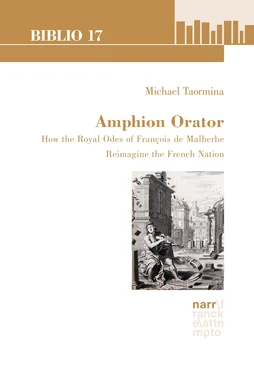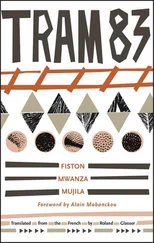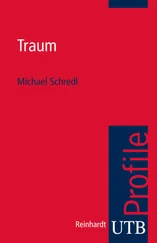Michael Taormina - Amphion Orator
Здесь есть возможность читать онлайн «Michael Taormina - Amphion Orator» — ознакомительный отрывок электронной книги совершенно бесплатно, а после прочтения отрывка купить полную версию. В некоторых случаях можно слушать аудио, скачать через торрент в формате fb2 и присутствует краткое содержание. Жанр: unrecognised, на английском языке. Описание произведения, (предисловие) а так же отзывы посетителей доступны на портале библиотеки ЛибКат.
- Название:Amphion Orator
- Автор:
- Жанр:
- Год:неизвестен
- ISBN:нет данных
- Рейтинг книги:4 / 5. Голосов: 1
-
Избранное:Добавить в избранное
- Отзывы:
-
Ваша оценка:
- 80
- 1
- 2
- 3
- 4
- 5
Amphion Orator: краткое содержание, описание и аннотация
Предлагаем к чтению аннотацию, описание, краткое содержание или предисловие (зависит от того, что написал сам автор книги «Amphion Orator»). Если вы не нашли необходимую информацию о книге — напишите в комментариях, мы постараемся отыскать её.
Amphion Orator — читать онлайн ознакомительный отрывок
Ниже представлен текст книги, разбитый по страницам. Система сохранения места последней прочитанной страницы, позволяет с удобством читать онлайн бесплатно книгу «Amphion Orator», без необходимости каждый раз заново искать на чём Вы остановились. Поставьте закладку, и сможете в любой момент перейти на страницу, на которой закончили чтение.
Интервал:
Закладка:
Instrumental to this affective reorientation is the overarching myth that unifies the sequence of royal odes. The grand tableau that must be inferred from their classical and biblical exampleexamples and imagery is a subtle but powerful source of the civic unity which the odes seek to instill. Malherbe’s recourse to the classical commonplace of the ship of stateship of state to unify his poetic sequence and to model the new unity of the nationnation distances the royal odes from the neo-Stoicstoicism political ideology which was the “philosophico-ethical union at the root of the union between the HuguenotsHuguenots and the politicians for the defense of the state” (Crouzet 84). The odes share with royalist pamphlets the intention to integrate the new dynasty into the “mystico-prophetic legend of the French monarchy” (Crouzet 90), but the royalists’ “temporal messianism” (Crouzet 93) differs from Malherbe’s in significant ways. Such royalist pamphlets as Declaration du Roy de Navarre sur les calomnies publiées contre luy (1585), Panegyric Au très chrestien Henry IIII (1590), or Le Labyrinthe de l’Hercule gaulois triomphant (1601) depict Henri IV as a Christ-like stoicstoicism HerculesHercules whose reign is founded on “eternal Reason” (Crouzet 93), that is, “a historical necessity dictated by the order of the universe” (Crouzet 90), “a cosmic force acting through the royal figure” (Crouzet 90). Malherbe’s royal odes also acknowledge the special relationship that must exist between God and Henri given the miraculous arrival of this leader to perpetuate the providential history of France, but they underscore Henri’s virtuevirtue more, assign human actions more credit for victory or defeat, and so portray Henri rather as a classical hero whose magnanimitymagnanimity is virtuegreatness of soulmagnanimityso great as to make him a demi-god. The relationship of husband and wife (“one flesh”), and then of father and son (“one blood”), promote Marie and Louis to the level of co-equals. If the Bourbons are the captains and/or pilots of the ship of stateship of state, then their subjects are the crew, and all have embarked on a political adventurehero cycleadventure to quest cyclehero cyclerestore quest epichero cyclepeace, justicevirtuejustice and prosperity at home while returning France to imperial greatness abroad. The odes thank God for Henri, see his leadership as indispensable to the general welfarecommonwealthgeneral welfare and thus advocate for his unconditional acceptance by all good Frenchmen, but they also call for civic engagement by subjects of the new nationnation according to the portion of virtuevirtue allotted to each.
While the accentuation of this nationnational myth is somewhat more secular, it is no less deeply spiritual. This is not simply because the odes endow the monarch and the nationnation with numinous feelings. Rather, the quest-like structure of the political adventurehero cycleadventure recalls the “hero cyclehero cycle” of Joseph CampbellCampbell, Joseph’s The Hero with a Thousand Faces , the pattern of departure-trial-return that underlies stories of adventurehero cycleadventure and/or spiritual illumination and describes the process of spiritual rebirth, whether personal, societal, or cosmic. “The hero is symbolical,” writes Campbell, “of that divine creative and redemptive image which is hidden within us all” (CampbellCampbell, Joseph 31). The royal odes’ portrayal of the Bourbons as mythical heroes, and the representation of the nationnation’s rebirth as the return of the Golden AgeGolden Age, attest to the nationnational myth’s spiritual objective , namely to move French subjects with love for monarch and nationnation. Such a universal change would be the nationnational rebirth which the odes herald, and it has two aspects. On the one hand, the hero saves the nationnation by action and exampleexample: the loyalty and service to the patrie nationla patrie exhibited by the monarch models the same commitment for the nationnation’s subjects and, through emulation, inspires it in them. On the other hand, the return of the Golden AgeGolden Age announced by the odes imagines a spiritual transformation on the grandest scale. The symbolic death of France during the armed struggle of the civil war and its symbolic rebirth under the heroic leadership of Henri, Marie, and Louis reproduces the cosmogonic cycle of dissolution and renewal (CampbellCampbell, Joseph 224). Such a transformation is total and presupposes the harmonious reintegration of the individual in society and the cosmos. For this reason, it is correct to call the nationnational myth of the royal odes universal, that is, all-encompassing.
Whether or not the Golden AgeGolden Age returns in fact, the odes present the questhero cyclequest as both collective and individual, requiring not just the goodwill and cooperation of the nationnation’s subjects, but the watchfulness of God, the action of the king, and the service of the great nobilitynobilitygreat nobles in particular. The new Golden AgeGolden Age is a “second coming,” so to speak, and most important, its imminent arrival demands a change in the reader to bring it about: the move from a partisan point of view to a collective national sentimentnationnational sentiment. In a nationnation fractured by religious dispute, the odes’ mythological allusions serve as a kind of substitute liturgy. Echoes from classical poetry, the PsalmOld TestamentPsalmss, and the ProphetOld TestamentProphetss become the common glue to hold together the various constituencies of the nationnation, but also the means by which the reader will undergo the necessary change. “It has always been the prime function of mythologymythology and rite to supply the symbols that carry the human spirit forward, in counteraction to those human fantasies that tend to hold it back” (Campbell 7). The odes certainly set out to persuade with argument, to move the reader with admiration, with fear, with emulation, etc., but their highly allusive composition also requires the reader’s active understanding. Most fascinating in this regard is Malherbe’s use of figures of thoughtfigures of thought— significatio figures of thoughtsignificatio [suggestion, allusion], emphasis figures of thoughtemphasis [hinting], and ratiocinatio figures of thoughtratiocinatio [inference]—which early modern rhetorical theorists, Catholic and ProtestantProtestant, developed from their reading of HellenisticstyleHellenistic rhetorical treatises to create an alternative conception of the grandstylegrand style that could include the Bible as one of its models.19 Such figuresfigures of thought occur in the odes primarily with reference to classical myth, but also encompass biblical allusions, suggesting that a “veiled spiritual meaning” attaches to specific images, a reading practice that one also finds in contemporary books of Ignatian spirituality.20 The literate constituencies targeted by the odes are implicated in the imaginary political adventurehero cycleadventure by having to work out the meaning of the odes for themselves, thereby undergoing the desired cognitive and affective modifications. Malherbe’s odes work with the reader to bring about the change of heart and motivation of will necessary to unite the nationnation on a new mythical foundation, the ship of stateship of state en route to utopia (cf. HoraceHorace, “Epode 16”). Reworking the famous slogan of Guillaume Postel (“one faith, one law, one king”), the royal odes propose what Jean de Serres could write in 1597: “one king, one law, one nationnation [ patrie nationla patrie].”21 Their aim is to propagate and to eternalize the ideology of this new national communitynationnational community.
The pillar of Malherbe’s patriotismpatriotism is magnanimitymagnanimity, the virtuevirtue for which the odes so highly praise the Bourbons. According to AristotleAristotle, magnanimitymagnanimity is the greatest of the virtuevirtues, implying the presence and perfection of all the others ( NE AristotleNicomachean Ethics (NE) 4.3 1123b30-1124a). For the generations of Frenchmen born and raised in civil strife, the idea of virtuevirtue was key in the justification of power and privilege. Political elites wanted to believe that virtuevirtue entitled them to rule. But magnanimitymagnanimity was especially appropriate to the Bourbons because the new regime needed its subjects, both greater and lesser, to believe that Bourbon authority was deserved as well as legitimate. Malherbe consistently asserts that Henri IV and Louis XIII deserve to be king—and Marie de Médicis, to be regent—thanks to their extraordinary achievements, but most of all, because they have the right concern with honor, putting the general welfarecommonwealthgeneral welfare of the nationnation ahead of all else. On that basis, the odes un-self-consciously celebrate Henri IV and Louis XIII as quasi-divine heroes of superlative virtuevirtue (or in Marie de Médicis’ case, a great-souled goddess), anticipating the vogue for the idealized aspirations and superhuman individuals observed in theater and the heroic novel after 1630.22
Читать дальшеИнтервал:
Закладка:
Похожие книги на «Amphion Orator»
Представляем Вашему вниманию похожие книги на «Amphion Orator» списком для выбора. Мы отобрали схожую по названию и смыслу литературу в надежде предоставить читателям больше вариантов отыскать новые, интересные, ещё непрочитанные произведения.
Обсуждение, отзывы о книге «Amphion Orator» и просто собственные мнения читателей. Оставьте ваши комментарии, напишите, что Вы думаете о произведении, его смысле или главных героях. Укажите что конкретно понравилось, а что нет, и почему Вы так считаете.












